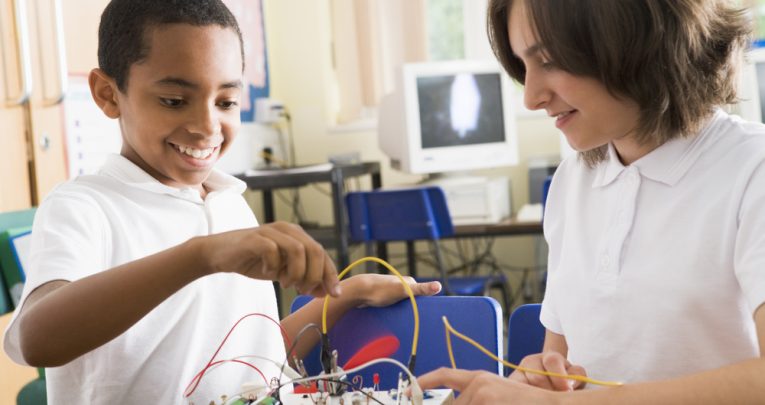Primary Education Should Be About Engaging With The Wider World – Not Just Tests

Primary education ought to enhance learning, not just assess it, says International Baccalaureate regional director, Adrian Kearney…

Whatever your reaction to the recent headlines relating to this year’s SATs, or your view on whether tests were too challenging for too many pupils, educators agree that assessment is a valuable part of the teaching and learning process. It benefits pupils, parents and teachers alike, enabling each one to refine their approach.
That said, there is so much more to teaching and learning than assessment at all ages, as is the case in a number of schools and throughout various countries. The delivery of primary education, in particular, should not be restricted to preparing children for tests, secondary school, or even as far ahead as the world of work.
The here and now
Education is about the here and now, as well as the future – and children of different ages benefit from teaching and learning approaches that are suitable for their different stages of development. Primary education ought to respond to children’s existing capabilities, and offer them opportunities to develop their essential knowledge, skills and dispositions.
Primary years learning must of course pay attention to core subjects, such as literacy and numeracy – but teachers also need to consider all areas of children’s development. Primary-aged children are still learning communication skills, and are just beginning to understand their physical, emotional and moral development.
For many children, school is their first exposure to the world’s immense cultural and linguistic diversity, thus creating a vast array of educational opportunities and possibilities for in-depth learning. Primary education needs to cater for all of this investigation by connecting pupils not just with their peers in school, but also with local communities and even the wider world beyond those communities – while at the same time ensuring that curricula are responsive to pupils’ interests, needs and experiences.
Reception pupils, for instance, thrive when encouraged to play outdoors. In deciding for themselves or in groups how to play and what to play with, their imaginations are able to run wild, extending their learning far beyond what’s possible in a classroom environment. They might opt to build a castle out of crates, put on a puppet show, or investigate some colourful flowers nearby that happen to capture their interest.
Y6 SATs, on the other hand, offer children little opportunity during the school year to demonstrate creativity, or to develop essential communication, social, research, self-management and thinking skills. Instead, the pressure to do well in these tests serves to steer schools towards teaching their pupils how to pass them, rather than exercising their freedom to teach what is most likely to engage and inspire them – or indeed involve pupils in planning and assessing their own learning.
Resonating on a deeper level
We must protect those approaches that enhance learning, as well as assess it; those approaches that support curricula, rather than distort them, and which pursue high standards in all areas of learning.
It’s important that tests – forms of assessment conducted at a particular moment in time and within a narrow spectrum of learning – are not treated as measures of a child’s entire educational achievement, nor of what the school itself is able to provide. Tests should instead be viewed as just one of many sources of assessment data that teachers can use to develop their teaching and learning programmes.
We need to develop a new generation of inquisitive, knowledgeable and caring young people across the world, who are able to envision and create a more sustainable and just world for generations to come. An internationally recognised, globally relevant education – one which will provide young people with transferable skills that can be applied to challenges relating to diversity, identity, rights and responsibilities, sustainability and global justice – is surely much more pertinent.
Since these ideas relate to the world beyond school, learners will come to see their relevance from a young age, and be able to connect with their learning in an engaging, yet challenging way. Pupils who learn in this way will begin to reflect on their roles and responsibilities as learners, and become actively involved in their education.
When young learners are given a topic that is relevant, and which they can investigate through being driven by their own questions and curiosity, their learning is more likely to resonate with them on a deeper level. A holistic approach towards primary education that focuses on the learner is what primary education should offer, to ensure that future generations are learners for life.
Adrian Kearney is Africa, Europe and Middle East Regional Director for International Baccalaureate; for more information, visit www.ibo.org or follow @iborganization











